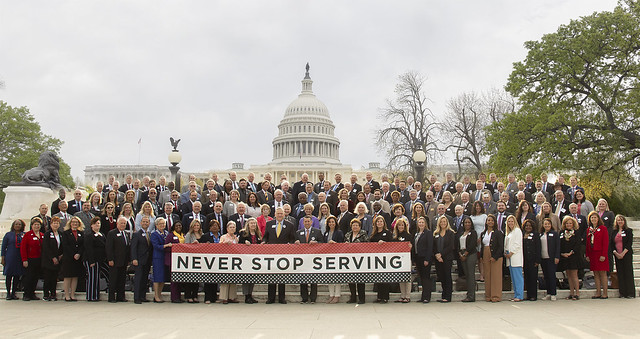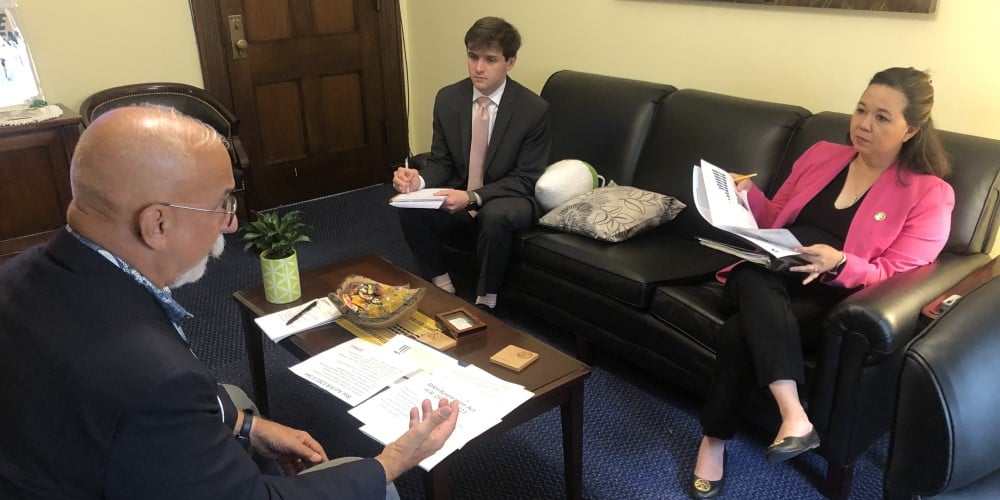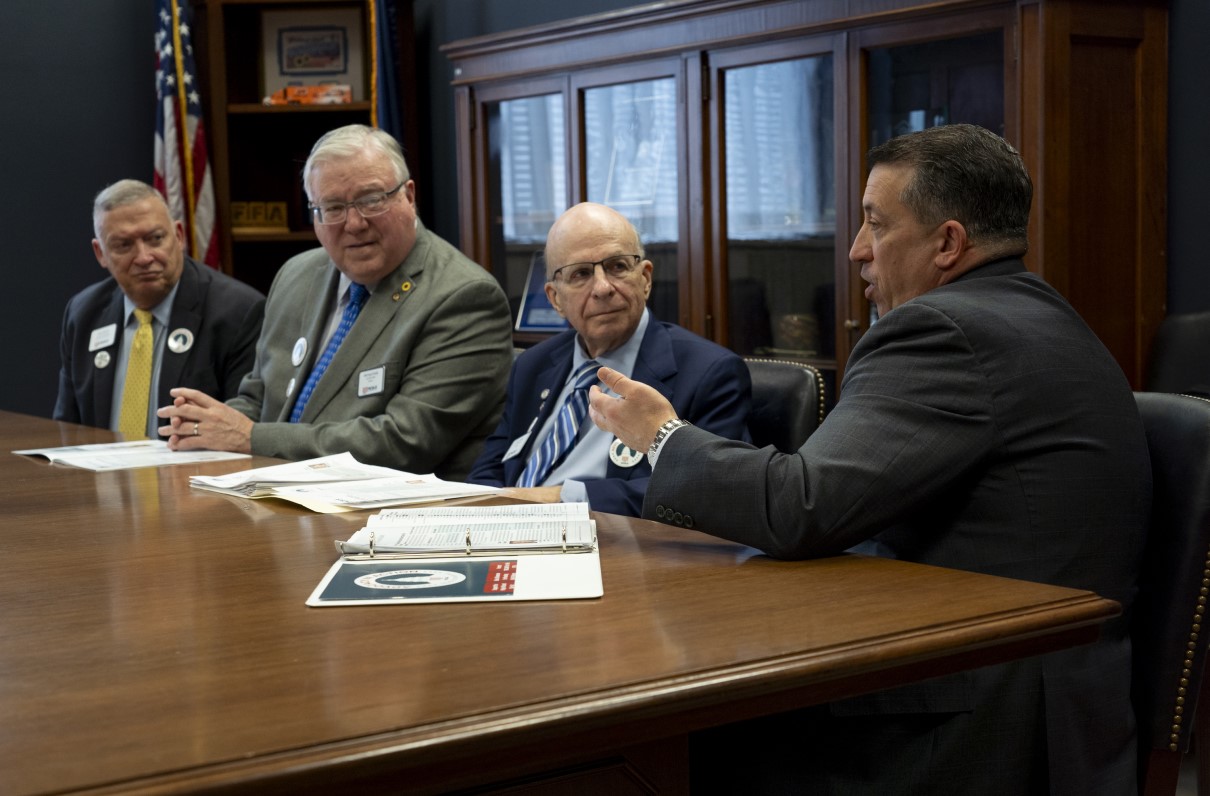MOAA’s work to keep the unjust treatment of combat-injured veterans at the forefront of lawmakers’ minds has moved into another gear in recent weeks, but the fight is far from over.
Support for the Major Richard Star Act (H.R. 1282 | S. 344), which would prevent these veterans from losing a dollar of DoD-funded retirement pay for every dollar of VA-funded disability compensation, echoed through the halls of Congress last week as part of MOAA’s annual Advocacy in Action (AiA) event, with hundreds of legislators and staffers hearing from MOAA visitors. The wide majority expressed support for the measure; not surprising, as the bill boasts 74 co-sponsors in the Senate and an impressive 327 in the House.
[TAKE ACTION: Ask Your Lawmakers to include the Major Richard Star Act in the FY 2025 NDAA]
The Hill visits came on the heels of a recent joint Veterans Affairs Committee panel where each advocacy group – MOAA included – echoed support for the Star Act. And The Military Coalition recently led a Star Act Advocacy Day on Capitol Hill to increase support for the legislation; MOAA is a proud TMC member and led planning efforts for that event.

So, with support steadily increasing into a busy spring legislative session, what stumbling blocks remain, and how can they be overcome?
[RELATED: Combat-Injured Veterans Need Our Help NOW – Here’s How to Join the Fight]
Cost Concerns Continue
The loudest opposition comes from lawmakers who seek to tamp down any increased spending, even the funds needed to fix a clear oversight and restore earned compensation for combat-injured veterans. To ensure the Star Act remains a matter of priority in this election year, these lawmakers need to hear the reality behind these concerns:
- The Wrong Message: Achieving savings by reducing DoD retired pay for combat-injured veterans is an awful injustice. Continuing to do so during a recruiting crisis is even worse – breaking faith with veterans will sour potential recruits – especially the 65% of whom don’t wish to serve due to injury concerns, according to DoD data – and the veterans themselves, turning off valuable influencers.
- The Wrong Math: The Congressional Budget Office’s projection of $9 billion over 10 years to fund the legislation is likely double the true cost of the bill. It assumes all 52,304 eligible combat-injured veterans would switch from current compensation programs to Concurrent Retirement and Disability Pay (CRDP), but about half may find financial benefit by staying with the current, tax-free compensation. The Star Act is not retroactive, does not include back pay, and is actuarily sound.

Col. Michael Fricano, USAF (Ret), a member of MOAA's Hawaii Aloha Chapter, left, meets with Rep. Jill Tokuda (D-Hawaii), right, an initial co-sponsor of the Major Richard Star Act, during MOAA’s Advocacy in Action event on April 17 in Washington, D.C. (Photo by Michaela Culhane/MOAA)
How You Can Help
Although AiA has concluded, we still need members to engage their representatives through our Legislative Action Center.
[TAKE ACTION: Ask Your Lawmakers to include the Major Richard Star Act in the FY 2025 NDAA]
Amplify your message with your network of friends and family who can use the action center. Customize the message to add impact.
Another great way to amplify your message is to use MOAA’s toll-free hotline – 866-272-MOAA (6622) – to contact your lawmakers. Officials need to hear your voice as a constituent; grassroots advocacy has a greater impact during election years.
When you call, be sure to ask to speak with the staff military legislative assistant or legislative director who evaluate all military related legislation for your lawmakers. You may have to schedule a follow-up phone call to get past the front desk and speak with the appropriate congressional staff member – your call may be what’s needed to get the lawmaker’s office to support inclusion of the Star Act in the NDAA.
Spread the word! Subscribe and follow the progress of all MOAA’s legislative initiatives at MOAA’s Advocacy News page.
When MOAA Speaks, Congress Listens
Learn more about MOAA’s key advocacy issues, and contact your elected officials using our messaging platform.

